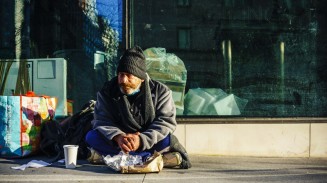The European Union on Friday pledged 140 million euros ($180 million) to boost the fight against Ebola in West Africa, where the death toll in the worst outbreak on record has passed 2,100 people.
More than six months into the crisis, the disease is spreading faster than ever and organizations across the world are scrambling cash and supplies to the region. But the World Health Organization (WHO) said the lack of trained staff was hobbling the response.
"The situation is going from bad to worse," said Kristalina Georgieva, the EU commissioner responsible for humanitarian aid. "We are helping make a difference on the ground but the needs are outpacing the international community's capacity to react."
The outbreak was first confirmed in Guinea in March and has since gripped Liberia and Sierra Leone. Cases have also been confirmed in Nigeria to the east and Senegal to the west, where a Guinean student has been isolated.
The EU funding will be used to strengthen health systems, train health workers and pay for mobile testing laboratories, highlighting how the disease has struck some of the continent's poorest nations and exposed the fragility of their medical care.
Over 97 million euros will be spent on budget support to Liberia and Sierra Leone in order to help them deliver public services, including health care, and maintain macroeconomic stability, the European Commission said in a statement.
The WHO last month announced a strategic plan to contain the epidemic over the next nine months, during time which it expects 20,000 people will have contracted the disease.
The United Nations said this week $600 million would be needed to fight the outbreak and an Ebola crisis center would be set up to coordinate the response.
The WHO's plan calls for a force of 12,000 local health workers and 750 foreign experts to be rolled out.
"What is needed really is getting more experts who will be able to train and equip the health workers who will be recruited," said WHO spokesman Tarik Jasarevic in Geneva.
WHO figures showed that 2,105 people had died by Sept. 5, over half of them in Liberia.
NOWHERE TO GO
Ebola is a haemorrhagic fever spread through the blood, sweat or vomit of those infected, making those working directly with the sick among the most vulnerable to the disease.
There is no cure so far, although experimental drugs have been used. The WHO said on Friday experts had agreed that products derived from the blood of survivors could be used to treat the virus, and called for further investment.
According to the WHO, 256 health workers have been infected and 134 have died in this outbreak of Ebola, West Africa's first.
The crisis has crippled the health sectors particularly of Liberia and Sierra Leone, which were short of doctors even before the epidemic struck.
Poor pay and difficult working conditions have prompted health workers to strike in both countries.
The Liberian government has begun offering a $1,000 bonus to healthcare staff who agree to work in Ebola treatment centers.
The WHO has 202 people assigned to tackle Ebola in the affected countries, and the U.S. Center for Disease Control has sent between 60 and 80 experts to Guinea, Sierra Leone or Liberia, according to a U.S. diplomat.
As of Aug. 28, the medical charity Medecins Sans Frontieres (MSF) had 156 foreign staff and about 1,700 local personnel at the forefront of the fight against the epidemic.
The WHO's Jasarevic said the lack of treatment centers was most serious in Liberia, where health officials have been unable to get a true picture of the size of the outbreak.
"This is where we are having the biggest problem, where people simply don't have somewhere to go," he said.
Only about a quarter of Liberian cases are currently being confirmed by a laboratory, he said, with the vast majority listed in WHO statistics as "suspected" or "probable".
At least 31 people have also died of Ebola in Democratic Republic of Congo in an unrelated outbreak.
Copyright Thomson Reuters. All rights reserved.
Get the Most Popular Lawyerherald Stories in a Weekly Newsletter





